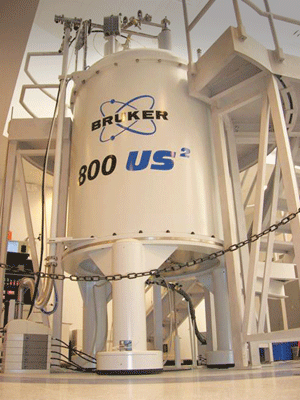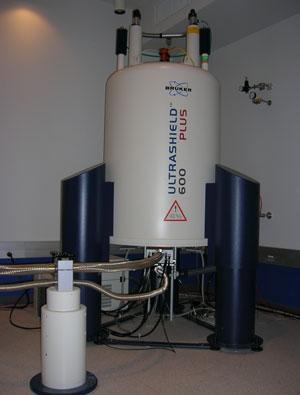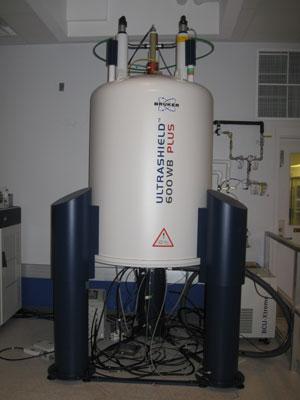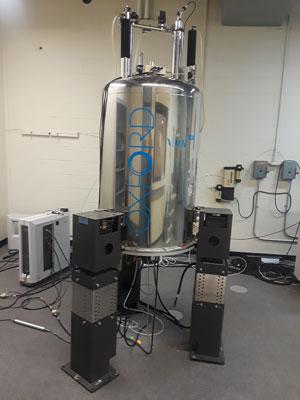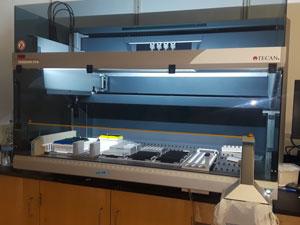The Nuclear Magnetic Resonance (NMR) Research Core provides Rensselaer researchers, in addition to academic and industrial users throughout the community, access to state-of-the-art, ultra-high field NMR instrumentation. The diverse capabilities of the facility are enabled with an array of fixed and broadband tunable probes for solution and solid-state NMR, and resonators and high power gradients for diffusion and magnetic resonance microimaging. The NMR core actively supports research programs including structure determination of small molecules, proteins, carbohydrates, nucleic acids, and macromolecular complexes at atomic resolution, quantitative analysis of complex mixtures, metabolomics applications, diffusion analysis, characterization of materials, and MR microimaging.
Expert training and assistance is available in experiment design and/or pulse sequence customization, sample preparation, data acquisition, processing, analysis, and reporting of results (e.g. manuscript and/or grant preparation) in addition to comprehensive fee-for-service support.
Contact Information:
Scott A. McCallum, Ph.D.
BioImaging & NMR Research Core Director
518-276-2856
mccals@rpi.edu
High sensitivity cryoprobes from 5 to 1.7mm (500 to 30 ul sample volumes) are available on 800 and 600 MHz instruments with autosample changers for detection of routine (1H, 2H, 13C, 15N, and 19F) nuclei in solution. Additional room temperature probes from 800 to 500 MHz are available in sizes from 5 to 1mm for solution-state detection of routine and less commonly studied nuclei (e.g. 6Li, 7Li, 11B, 23Na, 29Si, 35Cl, …) that accommodate sample volumes of 500 to 10 ul. 4mm HXY MAS and 3.2mm E-Free H,C,N/P MAS are available for solid-state NMR studies.
- 1D analysis of 1H, 13C, 19F, 31P,29Si and more nuclei by solution and solid-state NMR including quantitative NMR (qNMR), multiplicity editing, TOCSY/NOESY, CP-MAS
- 2D experiments (HSQC, HMBC, H2BC, COSY, TOCSY, NOESY/ROESY, HETCOR, double CP)
- Chemical structure and composition validation of major and minor components
- 3D structure determination and analysis of confrontational dynamics
- 1D and 2D drug screening experiments (e.g. STD, WaterLOGSY)
- 1D and 2D characterization and editing by diffusion spectroscopy (DOSY)
- Copolymer composition analysis including confirmation of rare linkages
- Determination of affinity constants and interaction sites involving biomolecular interactions
A wet lab for sample preparation complete with a Tecan liquid handing robot, tabletop, micro, and NMR tube centrifuges, pH meter, fume hood, and wet bench is available to facility users. In addition, the facility offers both LINUX and Windows based workstations complete with a variety of software packages for data processing and analysis and a dedicated LINUX cluster for performing advanced NMR data processing, structure determination calculations, and restrained molecular dynamics simulations.
Major research programs at RPI utilize NMR methods in the engineering of biotherapeutics, to reveal protein folding and aggregation mechanisms/kinetics central to Alzheimer’s, Parkinson's, and HIV diseases, and many others including structural informatics/gene discovery, cancer biology, bone mineralization, and drug discovery for preventing infectious microbial diseases.
Technology
